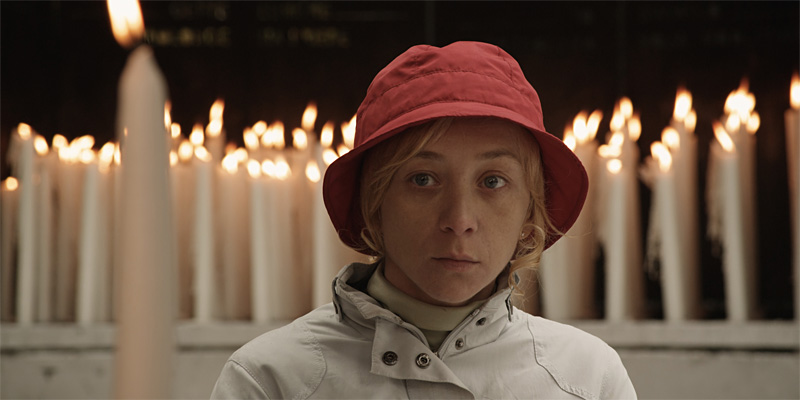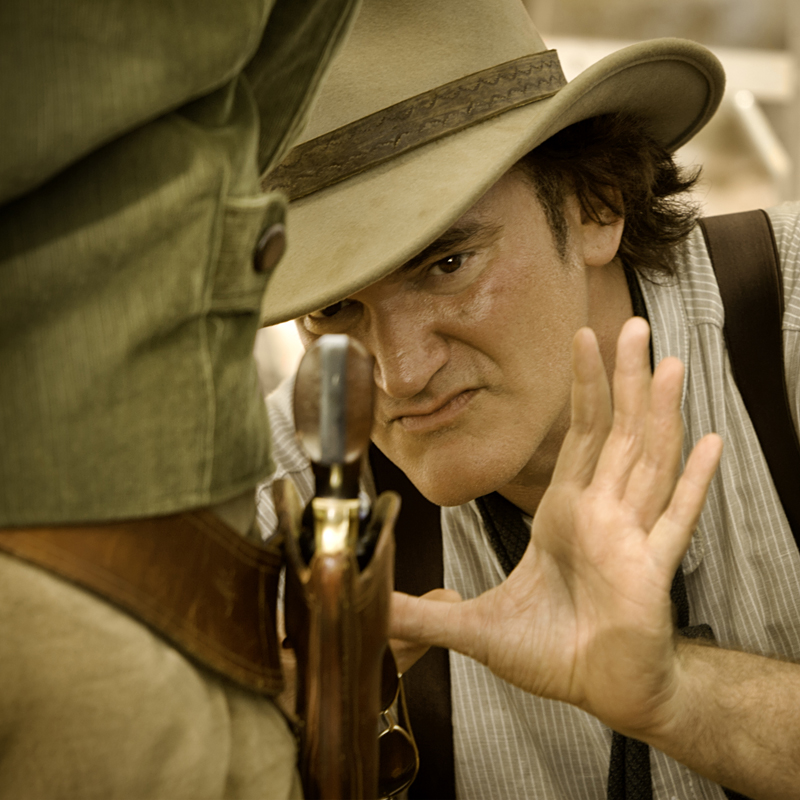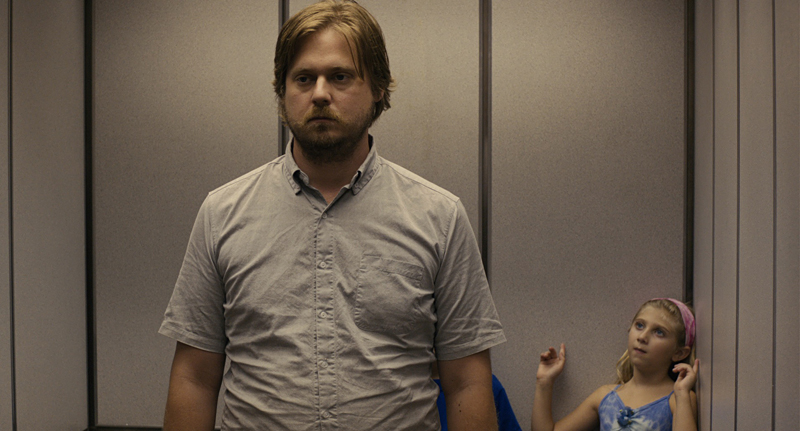Blonde, wide-eyed Christine (Sylvie Testud, giving a great Mona Lisa smile) stands out amid the crowd of ill and otherwise desperate souls on a pilgrimage to Lourdes, a holy spot in the Pyrenees where the Virgin Mary allegedly performed healing miracles. Unable to move her arms and confined to a wheelchair by multiple sclerosis, Christine’s adult desires (manifested in shy flirting with hunky Order of Malta officer Bruno Todeschini) are frustrated by a body that has to be lifted and laid into bed like a baby. Christine’s faith is clearly not as blind as that of her fellow travelers, but when she starts dreaming of a miracle, she has more conviction than the zealots that her dreams could come true. And then they do. Has God “manifested his presence,” as a priest promises? In the world of the film, where even missionaries recommend resignation, is a miracle a real possibility? Part of Lourdes‘ appeal is the extent to which Testud and director Jessica Hausner refrain from demystifying the mystical. Winking at the absurdity of miracle hunting without fully undercutting its seriousness, Lourdes
ultimately eschews rigorous religious inquiry to study the mechanics of envy and frustrated desire. As Christine shifts from giver to receiver of a penetrative gaze, the film delves deeper into the pain and pleasure of watching other people experience the wonderful things you dream of happening to you. In that sense, Hausner has crafted a kind of meta-riff on the masochistic lure of cinema itself.








